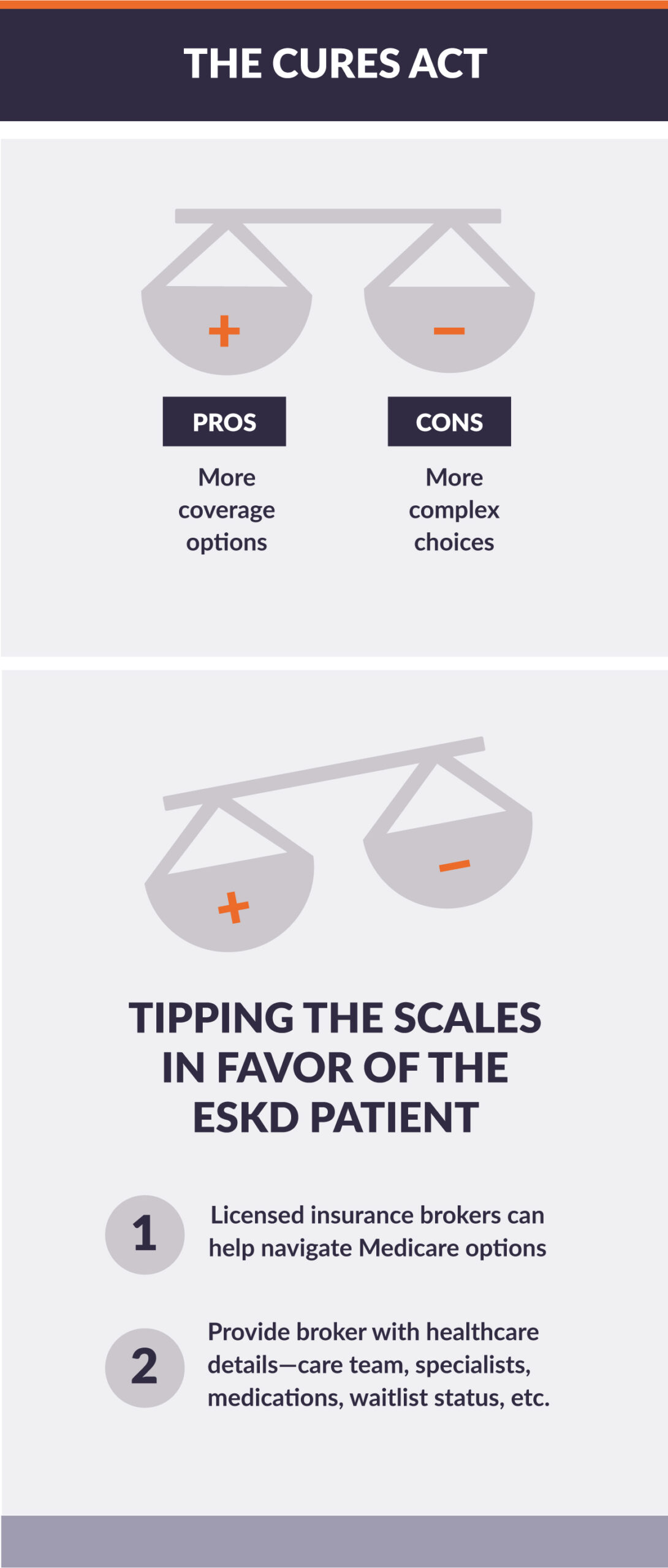End Stage Kidney Disease and Medicare Advantage
Once a year, Medicare beneficiaries have the opportunity to reexamine their healthcare coverage and determine if they wish to make changes.1 Until very recently, patients with end stage kidney disease (ESKD) were prohibited from enrolling in a general Medicare Advantage (MA) plan and could only join a Chronic Special Needs Plan (CSNP), of which there were a limited number.2 That changed in 2020 when legislation, referred to as the 21st Century Cures Act, included a provision to lift the MA exclusion for patients with ESKD.3
The Cures Act
The 21st Century Cures Act was signed into law by President Barack Obama in December 2016.3 While the bulk of the Cures Act focused on health information technology, an important provision of this piece of legislation removed the ESKD MA exclusion. For the first time during open enrollment in 2020, patients with ESKD covered by Medicare could enroll in a general MA plan.3
Open Enrollment
Between October 15 and December 7 each year, Medicare beneficiaries have the opportunity to change their healthcare coverage during open enrollment, also known as Medicare’s annual election period.1 Now that they have more options, this can be a very complex decision for patients with ESKD as they see multiple physicians, require a large number of medications, and receive dialysis on an ongoing basis.
Success During Open Enrollment
In years past, patients with ESKD could generally ignore the avalanche of advertising regarding Medicare open enrollment because their choice was limited. With the removal of the MA exclusion for ESKD, they now have important choices to make.3 The good news is that there are typically a number of options for the ESKD Medicare beneficiary. The bad news is the choices are often quite complex. Success during open enrollment can be furthered with help from a trusted licensed insurance broker.4 Making sure brokers are informed of the beneficiary’s care team (e.g., physicians, specialists, dialysis providers, etc.), medication regimen, and waitlist status can help beneficiaries select the best MA plan for them.
Conclusion
Medicare Advantage may not be the best option for all patients with ESKD, but the 21st Century Cures Act has made general Medicare Advantage plans available for ESKD patients.3 Having this option is likely best considered with a licensed insurance broker during open enrollment.4
